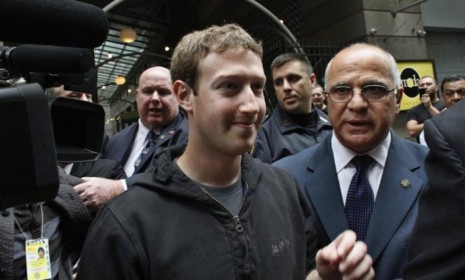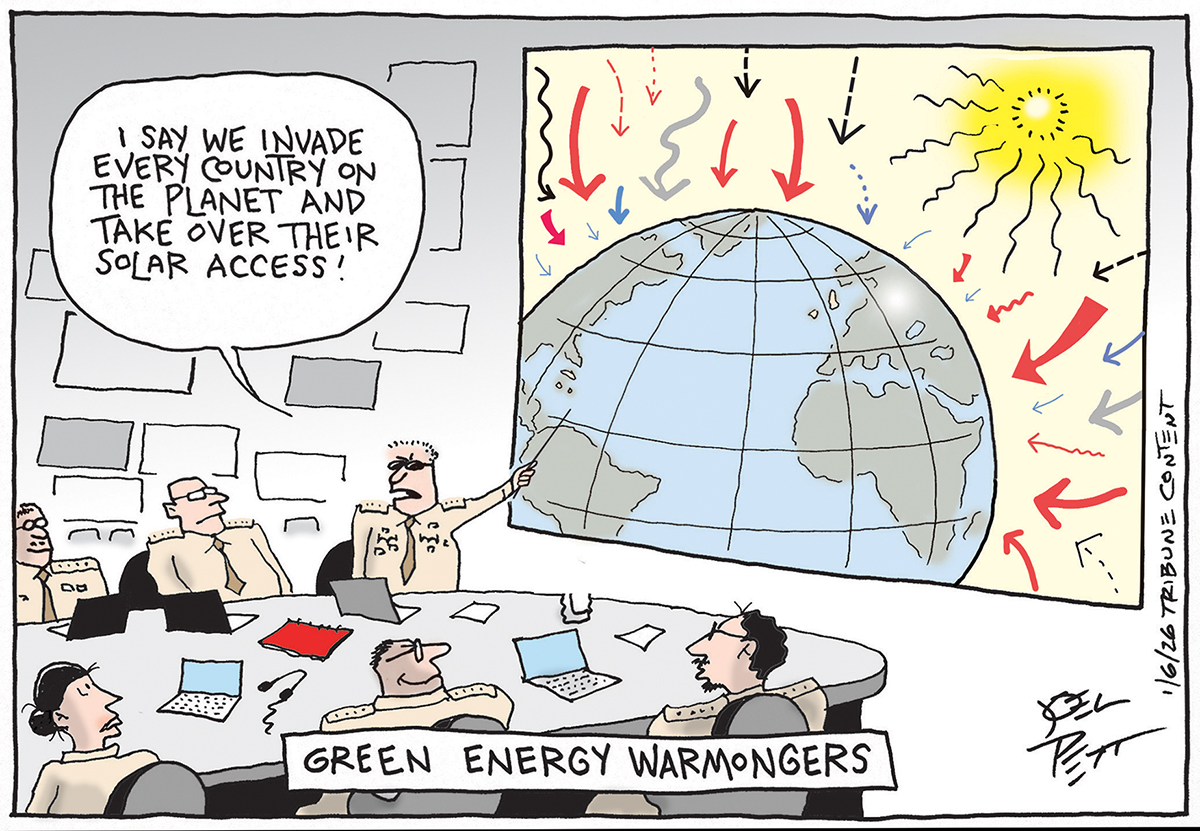6 signs investors are paying too much for Facebook
Mark Zuckerberg's ubiquitous social network will likely be valued at more than $100 billion when it launches its IPO on Friday. Is the company massively overhyped?

In the most breathlessly obsessed-over IPO in recent memory, Facebook is expected to begin selling shares at $38 a pop on Friday, which would raise $18.4 billion for its pre-IPO investors and value the company at about $104 billion. That would make Facebook more valuable than Disney and McDonald's, and turn its IPO into the second-largest in U.S. history (after Visa's in 2008). Some investors say the company, with 900 million users and counting, is worth every penny. Dissenters argue that Facebook could be among the tech industry's biggest stock bubbles ever. Here, six signs that Facebook may not be worth the hype:
1. Facebook doesn't make enough money
Sure, the company hauled in a cool $3.7 billion in revenue in 2011. But with 900 million users, that means Facebook is only making $4 a person, far lower than Google's $24 per user. "The most common question that dogs Facebook is how it will keep its revenue growth on pace with its user growth," says Hayley Tsukayama at The Washington Post. Facebook even reported a dip in revenue last quarter, which is highly unusual for a company whose stratospheric IPO suggests that revenues can only climb.
The Week
Escape your echo chamber. Get the facts behind the news, plus analysis from multiple perspectives.

Sign up for The Week's Free Newsletters
From our morning news briefing to a weekly Good News Newsletter, get the best of The Week delivered directly to your inbox.
From our morning news briefing to a weekly Good News Newsletter, get the best of The Week delivered directly to your inbox.
2. Facebook's investors are unloading stock
This week, Facebook announced it was selling 25 percent more shares than initially expected — due to a frenzy of demand. Meanwhile, the company's original investors seem eager to unload their stock, an indication that "the smart money is getting out of Facebook," says Felix Salmon at Reuters. Instead of sticking around to see how high the stock will go, institutional investors like Goldman Sachs would rather take the money now.
3. Facebook has yet to figure out the smartphone market
People are increasingly shifting from desktop computing to smartphones, and Facebook hasn't kept up. Users enjoy accessing Facebook through their smartphones, but that's a platform "where Facebook generates very little advertising revenue," says Rolfe Winkler at The Wall Street Journal. A continued shift of users to mobile devices "will cannibalize" Facebook's profits.
A free daily email with the biggest news stories of the day – and the best features from TheWeek.com
4. Advertisers are unhappy with Facebook
Facebook's main source of revenue is ads, but some advertisers are skeptical of the site's marketing potential, says The New York Times. Just this week, General Motors yanked its Facebook ads, saying they didn't boost sales. Facebook has reams of personal information about users that could be gold for advertisers, but is reluctant to share over fears that users will object. In another user-friendly gesture, Facebook "doesn't let advertisers take over its home page or dress up their ads with a lot of bells and whistles."
5. The government could pounce on privacy violations
When Facebook becomes a public company, it will come under the watchful eye of the Federal Trade Commission, the Securities and Exchange Commission, and Congress, say Michelle Quinn and Tony Romm at Politico. And you can bet that any move by Zuckerberg and Co. to take advantage of user information would be heavily scrutinized. But "pressing against the boundaries of confidentiality, in the eyes of many analysts, is the only way the most lavish expectations of Facebook's value have any economic logic."
6. Facebook simply can't live up to sky-high expectations
If Facebook is valued at $100 billion, "investors are estimating that each person with a Facebook page is worth roughly $110," not the current $4, says The Times. Facebook would have to start hauling in far more cash to match that expectation. And investors aren't going to settle for sitting on a $100 billion company — they're going to push CEO Mark Zuckerberg "to come up with a plan to make Facebook worth $200 billion, or $300 billion, or more," says Salmon. If he doesn't, he'll "face some extremely angry shareholders asking whether he played them for suckers."
-
 ‘No Other Choice,’ ‘Dead Man’s Wire,’ and ‘Father Mother Sister Brother’
‘No Other Choice,’ ‘Dead Man’s Wire,’ and ‘Father Mother Sister Brother’Feature A victim of downsizing turns murderous, an angry Indiana man takes a lender hostage, and a portrait of family by way of three awkward gatherings
-
 Political cartoons for January 11
Political cartoons for January 11Cartoons Sunday’s political cartoons include green energy, a simple plan, and more
-
 The launch of the world’s first weight-loss pill
The launch of the world’s first weight-loss pillSpeed Read Novo Nordisk and Eli Lilly have been racing to release the first GLP-1 pill